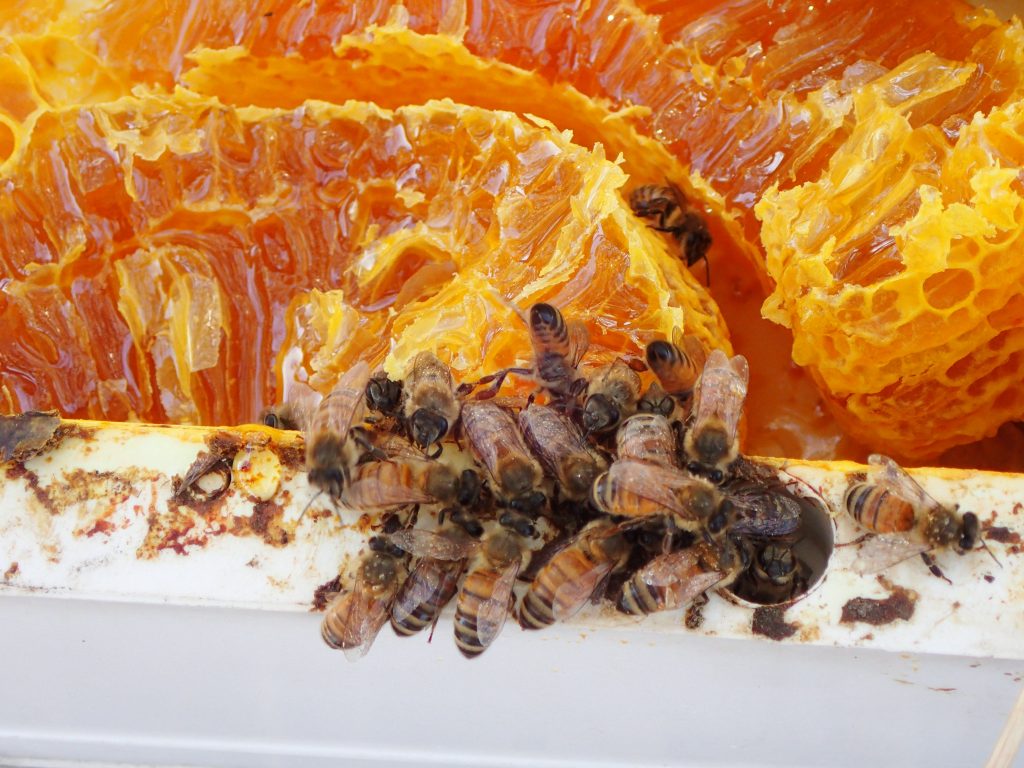When Bees Get Too Buzzed
As side-gigs go, Cormac Farrell’s is unique. An environmental impact specialist by day, he moonlights — as stated in his Twitter bio — as the Head Beekeeper of the Parliament of Australia. Since 2017, Parliament House — where the Australian legislative branch convenes — has also been home to a few hives of bees. The government established the bee program to help raise awareness around the importance of bees in agriculture in light of their declining populations.
But on October 9, 2019, Farrell shared something a picture of the bees that seems counter to the goals of Parliament and his beekeeping efforts: a pile of dead bees, as seen below.

As Farrell explained, “a few sharp-eyed folk walking have noticed dead and stumbling bees on the paths around [Parliament House] and have asked what is going on. The answer is alcohol! As the weather heats up, the nectar in some Australian flowers will ferment, making the foragers drunk.” Some literally drank themselves to death.
Why didn’t they just go home and sleep it off?
Well — assuming they could even find their way home — the buzzed bees would have had another problem: they probably weren’t allowed back in the hive.
Bees, like most non-human animals, don’t get drunk for fun, nor do they do so intentionally. Bees simply bounce around from flower to flower, drinking up nectar which they bring back to the hive. In almost all cases, that’s an alcohol-free lifestyle; the sugar content from most nectars is too high for fermentation to occur. But in the right environment, there are a handful of flowers that can produce fermented drinks for the bumbling guests. And if you’re an unfortunate bee foraging among those flowers, that can lead to dire consequences.
Drunk bees, much like drunk humans, tend to have a hard time navigating their way through their otherwise-familiar world. Bees tend to bumble anyway when flying — hence the term “bumblebee” — but usually, that wobble is intentional. As you can see from this slow-motion video of drunk bees trying to fly, they’re not very good at it. It’s hard for a drunk bee to find its way back to the hive. Many bees, like the ones seen above, die trying.
And the bees that do make it back can’t re-enter the hive until they’ve sobered up. Guard bees position themselves outside the hive to ensure that no invaders try to enter the bees’ home, and in this case, drunk bees are treated as outsiders. The guard bees, as seen in this video (starting at about 0:57), will physically push an intoxicated bee away from the hive and, if the drunkard puts up a fight, the guard bees will even break the legs of the stubbornly drunk bee to prevent it from returning home. The reason isn’t social, though; it’s to keep the rest of the bees safe from the same fate as their fallen, drunk hive mates. As entomologist Errol Hassan explained to the Guardian, “If [the drunk bees’] fermented nectar was turned into alcoholic honey, it could end up paralyzing the entire colony.” So really, don’t blame the guard bees too much.
Bonus fact: Bees work from sunrise to sunset, without taking a break during the daylight hours. But what happens when the sun suddenly disappears, say, during a solar eclipse? In 2017, North America experienced the rare celestial event, and for Candace Galen — a professor of biological science at the University of Missouri — that was an opportunity to learn the answer. She enlisted a team of researchers and a few hundred elementary school students to figure that out. As Smithsonian reported, “using tiny microphones suspended among flowers, the team recorded the buzzing of the bees through all stages of the eclipse. The bees were active and noisy right up to the last moments before totality, the part of a total solar eclipse when the moon blocks all direct sunlight, and a night-like darkness settles over the land. As totality hit, the bees went totally silent in unison.” When the light returned, so did the buzzing.
From the Archives: Bee Fence: How to keep elephants away and make some honey at the same time.
